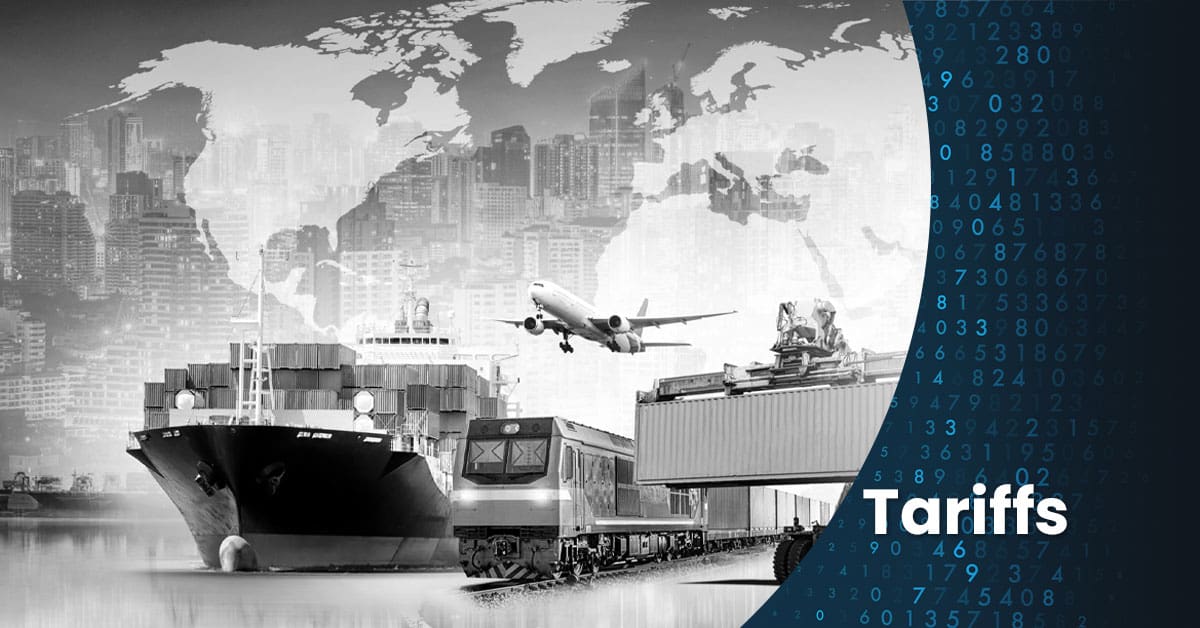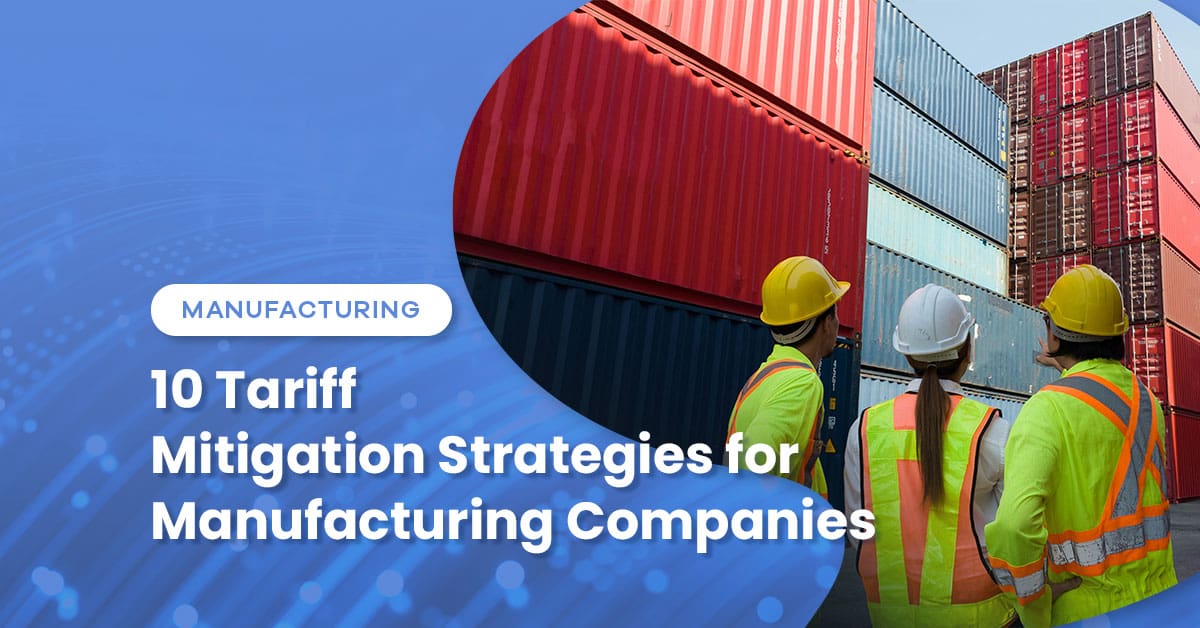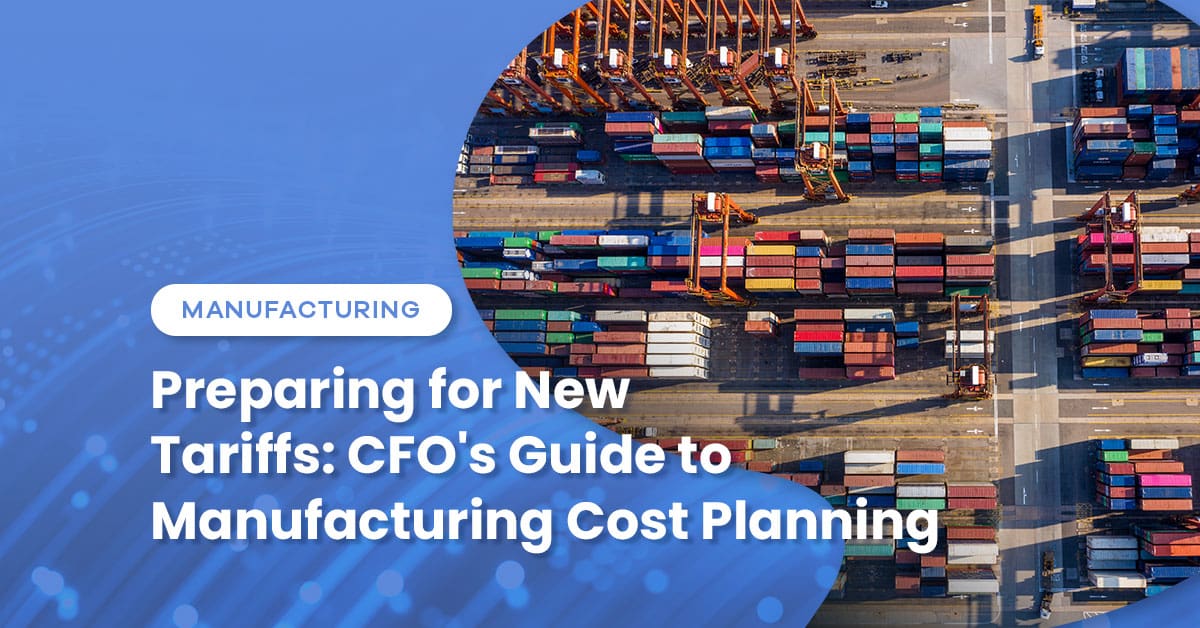On April 2, 2025, the United States has implemented a series of tariffs aimed at addressing trade imbalances and protecting domestic industries. Trump’s tariffs start at a baseline of 10% and can reach as high as 50% for certain countries. The tariffs are designed to address trade practices that are considered to contribute to large and persistent annual United Stated goods trade deficits.
As companies grapple with these new financial burdens, CFOs play a crucial role in ensuring business stability as the potential impact of Trump’s tariffs are felt.
Increased Costs for Imported Goods
Trump’s tariffs have significantly raised the cost of imported goods, particularly from China and Canada. Businesses that rely on these imports for their production processes are facing higher expenses, which can squeeze profit margins and lead to increased prices for consumers.
CFOs can mitigate this impact by exploring alternative suppliers from countries not affected by the tariffs. Additionally, they can negotiate better terms with existing suppliers or consider bulk purchasing to reduce costs. Implementing cost-saving measures within the company, such as streamlining operations and reducing waste, can also help offset the increased expenses.
Disrupted Supply Chains
Trump’s Tariffs can disrupt established supply chains, causing delays and shortages of critical components. This can lead to production slowdowns and affect the timely delivery of products to customers, ultimately impacting customer satisfaction and revenue.
To address supply chain disruptions, CFOs can work closely with supply chain managers to diversify sourcing strategies. Investing in technology to improve supply chain visibility and efficiency can help anticipate and manage disruptions. CFOs can also consider increasing inventory levels of critical components to buffer against delays.
Increased Consumer Prices
As businesses pass on the increased costs of tariffs to consumers, prices for goods and services rise. This can lead to reduced consumer spending and lower sales volumes, affecting overall business performance.
CFOs can mitigate the impact on consumer prices by implementing pricing strategies that balance cost recovery with competitive pricing. Offering promotions or discounts on certain products can help maintain sales volumes. Additionally, CFOs can explore cost-cutting measures in other areas of the business to avoid passing the full burden of tariffs onto consumers.
Cash Flow Management
Tariffs can squeeze cash flow by increasing costs and disrupting supply chains. Businesses may need more liquid assets to cover the higher expenses and manage delays, which can strain their cash flow management.
CFOs can shore up cash flow by identifying and leveraging various liquidity options. This includes renegotiating vendor contracts, considering sale lease-back arrangements, and exploring alternative financing options. Maintaining a dashboard of cash flow opportunities can help the C-suite make informed decisions during periods of financial strain.
Economic Uncertainty
The imposition of tariffs contributes to economic uncertainty, affecting business planning and investment decisions. Companies may become hesitant to invest in new projects or expand operations due to the unpredictable nature of trade policies.
CFOs can navigate economic uncertainty by maintaining a flexible financial strategy that allows for quick adjustments in response to changing conditions. Building a robust financial reserve can provide a cushion during periods of instability. CFOs should also stay informed about policy changes and engage in scenario planning to prepare for various outcomes.
Strategic Solutions for Navigating Trump’s Tariffs
The new tariffs present significant challenges for businesses, but with strategic planning and proactive measures, CFOs can help navigate the complexities of the current trade environment.
Learn more about how Wiss’ CFO Advisory, FP&A and Tech Advisory service help business face these coming challenges.





 Previous
Previous









